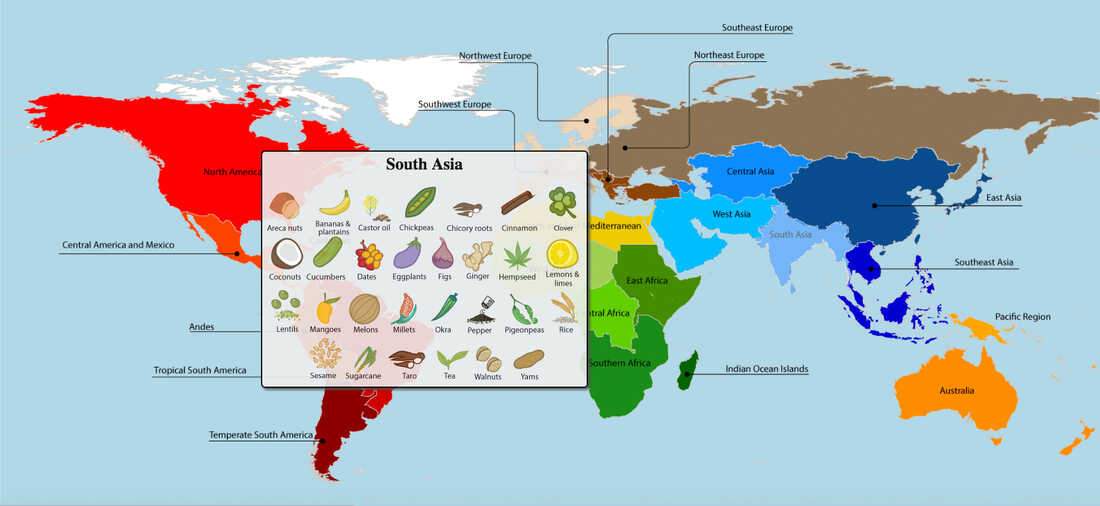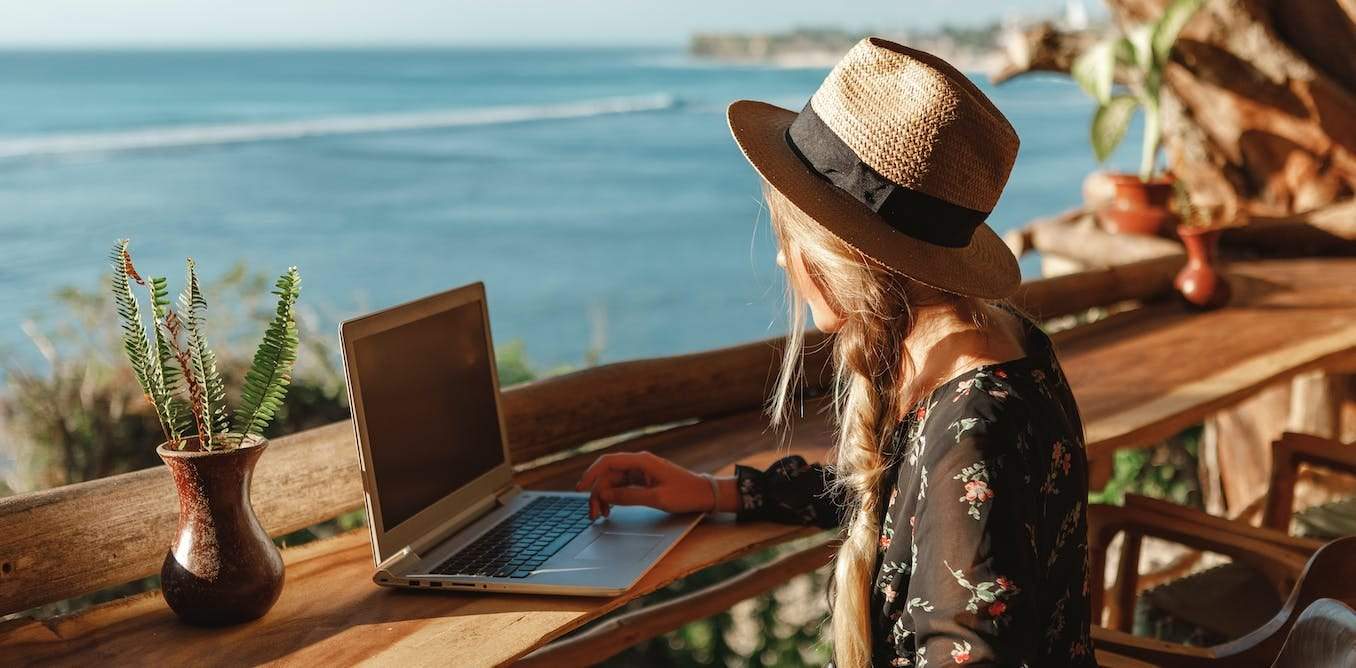The Transformative Power of Travel
Travel pushes us outside our routines and familiar environments, forcing us to adapt and react to unfamiliar situations. This process of adaptation can reveal strengths we didn't know we possessed, and shed light on areas where we can improve. Stepping outside our comfort zone allows us to confront our fears, challenge our assumptions, and ultimately, better understand ourselves. The constant decision-making inherent in travel, from navigating foreign transportation systems to choosing between a street food stall and a restaurant, builds confidence and problem-solving skills.
Practical Guidance: Identifying Your Travel Personality
Before embarking on a journey of self-discovery, it's helpful to reflect on your travel style and preferences. Consider these aspects:
- Your Comfort Zone: Are you an adventurous traveler who thrives on spontaneity, or do you prefer meticulously planned itineraries with familiar comforts? Understanding your comfort level is crucial for choosing trips that will challenge you without overwhelming you.
- Your Travel Goals: What do you hope to gain from your travels? Are you seeking relaxation, adventure, cultural immersion, or personal growth? Aligning your travel goals with your destination and activities will enhance your overall experience.
- Your Travel Style: Do you prefer solo travel, group tours, or traveling with friends or family? Each style offers unique opportunities for self-reflection and connection.
- Your Budget: Travel doesn't have to be expensive to be transformative. Consider budget-friendly options like backpacking, volunteering, or house-sitting to maximize your travel experiences.
Consider this table illustrating different travel styles and their potential impact on self-discovery:
| Travel Style | Potential Benefits for Self-Discovery | Potential Challenges |
|---|---|---|
| Solo Travel | Increased self-reliance, independence, deeper introspection, improved decision-making. | Loneliness, safety concerns, potential for isolation. |
| Group Tours | Exposure to diverse perspectives, facilitated learning, reduced planning stress. | Less flexibility, potential for personality clashes, limited opportunities for solitude. |
| Backpacking | Resilience building, resourcefulness, immersion in local culture, adaptability. | Physical demands, safety concerns, limited comfort. |
| Luxury Travel | Reduced stress, access to unique experiences, opportunities for relaxation and reflection. | Potential for detachment from local culture, increased environmental impact. |
Long-Term Considerations: Integrating Travel Lessons into Everyday Life
The lessons learned during travel shouldn't be confined to your vacation. The real value lies in integrating these insights into your daily life. Here are some long-term considerations:
- Mindfulness: Practice mindfulness techniques to maintain the sense of presence and awareness you cultivate while traveling. Meditation, journaling, and spending time in nature can help you stay grounded and connected to yourself. You can find many resources online to help with this, such as the [Mindful website](https://www.mindful.org/).
- Embracing Change: Use your travel experiences to become more adaptable and open to change in your personal and professional life. View challenges as opportunities for growth and learning.
- Cultivating Gratitude: Reflect on the positive aspects of your travels and express gratitude for the experiences and the people you encountered. This can help you maintain a positive outlook and appreciate the simple things in life. Consider using a gratitude journal.
- Staying Connected: Maintain connections with the people you met during your travels. Sharing your experiences and perspectives can deepen your understanding of yourself and the world.
- Continuous Learning: Travel can spark a desire for continuous learning. Pursue your newfound interests through books, documentaries, language learning, or online courses.
- Sustainable Practices: Adopt sustainable travel practices in your daily life, such as reducing your carbon footprint, supporting local businesses, and respecting different cultures.
Furthermore, the financial investment in travel requires consideration. While some trips might seem initially affordable, factor in potential long-term costs. Unexpected medical expenses are a significant risk; ensure adequate travel insurance. Currency fluctuations can also impact your budget, especially during extended trips. Consider the environmental impact of your travel choices and look for sustainable options, which sometimes involve higher upfront costs but contribute to the long-term well-being of the planet. Transportation costs, including flights, trains, and local transport, often represent a significant portion of travel expenses. Researching and booking in advance can often lead to cost savings. Accommodation costs vary widely depending on your choice of lodging. Consider alternatives like hostels or Airbnb for budget-friendly options, but be mindful of the potential for hidden fees or unexpected issues.
Overcoming Challenges: Navigating Discomfort and Uncertainty
Travel isn't always smooth sailing. You may encounter challenges such as language barriers, cultural misunderstandings, lost luggage, or unexpected delays. These challenges can be frustrating, but they also provide opportunities for growth. Here's how to navigate them:
- Embrace Uncertainty: Accept that things won't always go according to plan. Be flexible and adaptable, and learn to embrace the unexpected detours.
- Practice Patience: Patience is key when dealing with delays, language barriers, or cultural differences. Take a deep breath and remind yourself that these are temporary setbacks.
- Seek Help: Don't be afraid to ask for help when you need it. Locals are often happy to assist you, and there are many resources available online and in travel guides.
- Learn from Your Mistakes: Every challenge is a learning opportunity. Reflect on what went wrong and how you can avoid similar situations in the future.
- Stay Positive: Maintain a positive attitude, even when things get tough. Remember that travel is a journey, and the challenges are part of the experience.
A common challenge many travelers face is dealing with culture shock. Culture shock is the feeling of disorientation experienced by someone when they are suddenly subjected to an unfamiliar culture, way of life, or set of attitudes. Symptoms can include frustration, irritability, anxiety, and even physical ailments. According to a study on intercultural adaptation ([Source: Intercultural Communication Annual](https://journals.sagepub.com/home/ica)), understanding and managing culture shock is crucial for a positive travel experience. Strategies for mitigating culture shock include:
- Researching the destination: Familiarize yourself with the local customs, traditions, and etiquette before you arrive.
- Learning basic phrases in the local language: Even knowing a few basic greetings and phrases can make a big difference in your interactions with locals.
- Connecting with other travelers: Sharing your experiences with other travelers can provide support and perspective.
- Being open-minded and respectful: Remember that different cultures have different ways of doing things. Be open to new experiences and avoid making judgments.
- Taking care of your physical and mental health: Get enough sleep, eat healthy foods, and exercise regularly to maintain your well-being.
The Role of Technology in Self-Discovery Through Travel
Technology plays an increasingly significant role in travel, offering tools that can enhance self-discovery. Travel apps provide access to information about destinations, local customs, and language translation services. Social media platforms allow travelers to connect with others, share their experiences, and gain insights from different perspectives. Virtual reality technology offers immersive experiences that can simulate travel and inspire wanderlust. However, it's important to use technology mindfully and avoid relying on it too heavily. Disconnecting from technology can allow you to be more present in the moment and fully immerse yourself in your surroundings. The balance between using technology as a tool and being present in the real world is crucial for maximizing the benefits of travel.
Documenting Your Journey: Journaling and Photography
Documenting your travels through journaling and photography can be a powerful way to reflect on your experiences and gain deeper insights into yourself. Writing down your thoughts, feelings, and observations can help you process your emotions and identify patterns in your behavior. Photography allows you to capture the visual aspects of your journey and create lasting memories. Consider these tips for documenting your travels:
- Carry a journal and pen with you: Write down your thoughts and feelings whenever you have a quiet moment.
- Take photos that capture the essence of your experience: Focus on capturing the emotions, atmosphere, and details that resonate with you.
- Don't just take photos, be present in the moment: Put your camera down and take the time to truly experience your surroundings.
- Review your journal entries and photos regularly: Reflect on your experiences and identify the lessons you learned.
- Share your journey with others: Sharing your stories and photos can inspire others to travel and explore the world.
FAQ: Frequently Asked Questions About Travel and Self-Discovery
- Q: Can travel really change a person?
- A: Yes, travel can be a transformative experience that leads to personal growth, increased self-awareness, and a broader perspective on the world.
- Q: What if I don't have the money to travel internationally?
- A: Travel doesn't have to be expensive. Explore your own backyard, take day trips to nearby towns, or volunteer in your community. The key is to step outside your comfort zone and experience something new.
- Q: Is solo travel safe?
- A: Solo travel can be safe and rewarding with proper planning and precautions. Research your destination, stay in safe accommodations, and be aware of your surroundings.
- Q: How can I make my travels more meaningful?
- A: Set intentions for your travels, engage with local cultures, reflect on your experiences, and integrate the lessons you learn into your daily life.
- Q: What are the benefits of disconnecting from technology while traveling?
- A: Disconnecting from technology allows you to be more present in the moment, fully immerse yourself in your surroundings, and connect with yourself and others on a deeper level.
Disclaimer: This information is for informational purposes only and should not be considered professional advice. Travel involves inherent risks, and it's essential to take appropriate precautions to ensure your safety and well-being.
Sources
- [The Transformative Power of Travel](https://www.psychologytoday.com/us/blog/the-tao-innovation/201708/the-transformative-power-travel) - Psychology Today
- [Benefits of Travel for Mental Health](https://www.mhanational.org/blog/benefits-travel-mental-health) - Mental Health America
- [Intercultural Communication Annual](https://journals.sagepub.com/home/ica) - SAGE Journals





